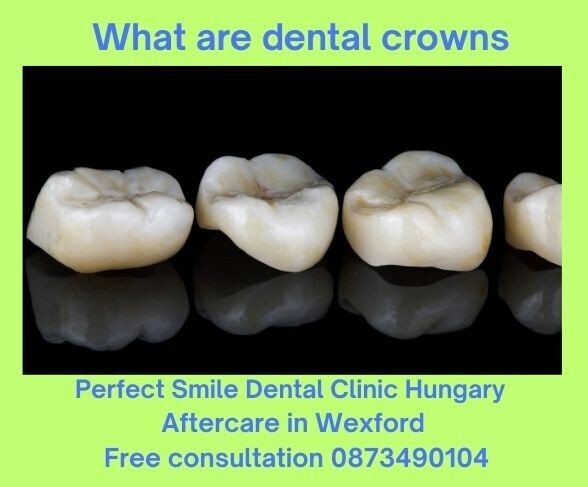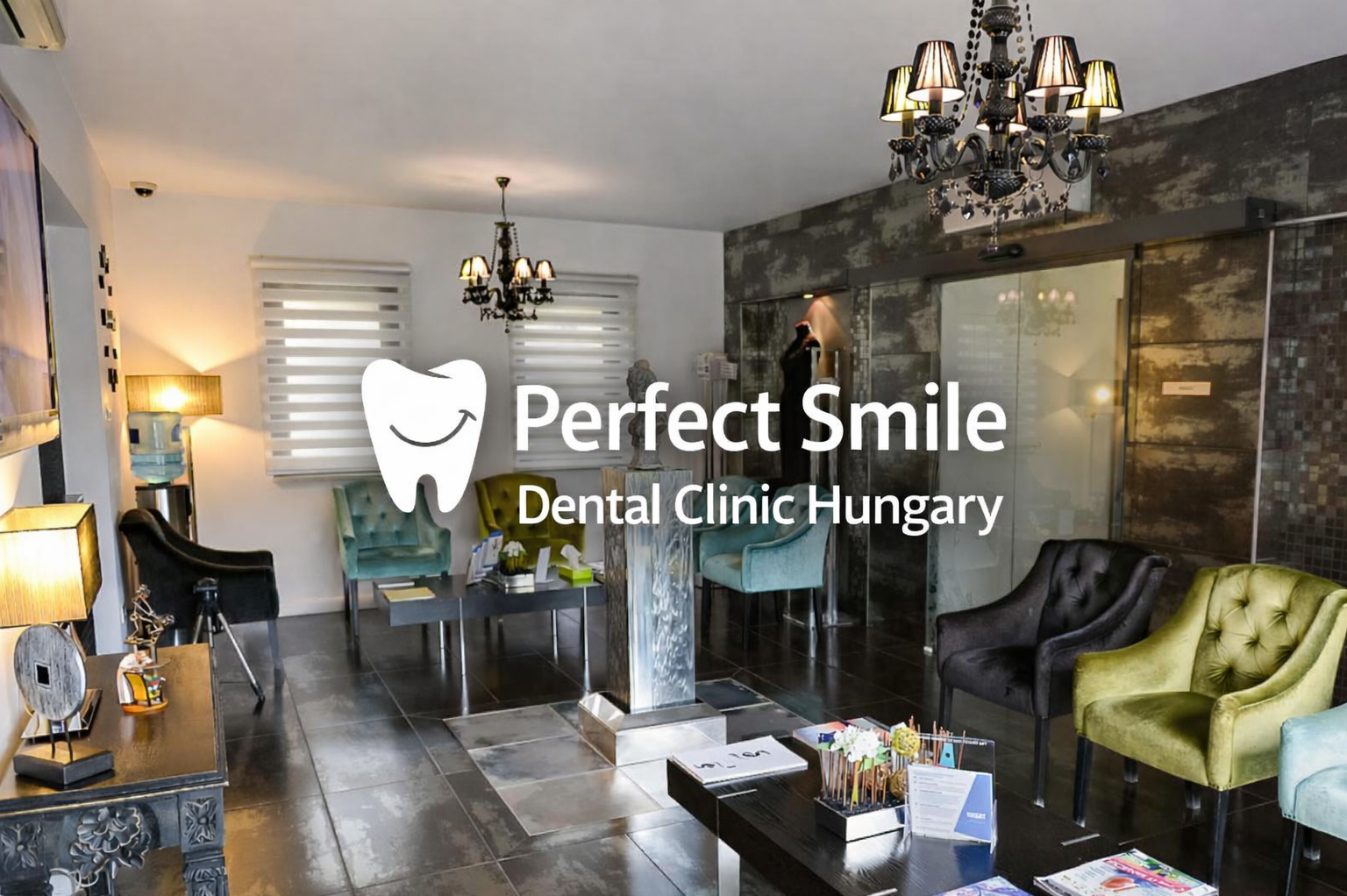Best Types of Dental Crowns
The best types of dental crowns at the more affordable prices and best value are available in Perfect Smile Dental clinic Hungary with free consultations in Hungarian Dentists Wexford.
Simply get on your phone and call Fintan now 0873490104, find out all the information on the best types of dental crowns and which is best for you.
Perfect Smile Dental Hungary is a professional dental clinic where for over 35 years our team have provided top quality dental crowns to many patients from Ireland.
We use a wide range of dental crowns to restore damaged teeth and to make them aesthetically pleasing, this renews confidence and self esteem.
You may have teeth that are cracked, weak following root canal treatment, badly discoloured or decayed, we have so many of the best dental crowns types that are available.
With so many materials and techniques available, many patients ask: What are the best types of dental crowns?
In this blog, we will explore the different types of crowns, their advantages and disadvantages, and which option may be best suited to your needs.

What Are Dental Crowns?
A dental crown or cap is what our technicians design after a mould is taken by our dentist, it covers the visible part of the tooth.
Our professional dental technicians in our on site laboratory in Perfect Smile Hungary shape the best dental crowns types so that they look good and feel natural.
At the same time we want to achieve the best results for our patients in terms of durability and strength, come to Wexford for a free consultation, call Fintan 0873490104.
Dental crowns types are best suited to restore the affected teeth but they can also be used for cosmetic reasons.
A good example is a situation where a large filling, a broken tooth, or following root canal treatment a crown would be used for protection and for aesthetics.
Types of Dental Crowns
1. Porcelain Crowns
Porcelain crowns are one of the most popular choices because of their natural appearance. They are designed to match the shade of your existing teeth, making them virtually indistinguishable from your natural smile.
Advantages:
- Excellent cosmetic results, ideal for front teeth.
- Stain resistant.
- Metal-free, which is suitable for patients with metal allergies.
Disadvantages:
- Not as strong as some other crown types.
- More prone to chipping, especially if placed on back teeth where biting force is stronger.
Best for: Patients seeking the most aesthetic solution for front teeth restorations.
2. Porcelain-Fused-to-Metal (PFM) Crowns
PFM crowns are a strong combination of porcelain and metal, they come with many benefits, porcelain for the cosmetic reasons and metal for resilience.
Advantages:
- Strong and durable, lasting many years with proper care.
- More natural appearance compared to all-metal crowns.
- Suitable for both front and back teeth.
Disadvantages:
- Over time, the metal beneath may become visible as a dark line at the gumline.
- Slightly less aesthetic than all-porcelain or zirconia crowns.
Best for: Best type of dental crowns for patients looking for the right balance of appearance and durability, especially in the molar or premolar teeth area.
Talk to Fintan 0873490104, the best types of dental crowns at the lowest price can be done in Perfect Smile Hungary, aftercare in Wexford.
3. Zirconia Crowns
Zirconia has become a top contender among the best types of dental crowns. Made from high-quality ceramic material, zirconia crowns are known for their strength and lifelike aesthetics.
Advantages:
- Extremely durable, withstanding heavy biting and chewing.
- Biocompatible, reducing the risk of allergic reactions.
- Excellent aesthetics, especially with layered zirconia options.
- Less tooth preparation required compared to PFM crowns.
Disadvantages:
- Can sometimes cause wear on opposing teeth.
- May be more expensive than other crown materials.
Best for: Patients who want long-lasting crowns that look natural, especially for molars and high-stress areas.
Talk to Fintan 0873490104, the best types of dental crowns at the lowest price can be done in Perfect Smile Hungary, aftercare in Wexford.

4. E-Max Crowns (Lithium Disilicate)
E-Max crowns are made from lithium disilicate, a glass-ceramic material known for its aesthetics and strength. These crowns have become increasingly popular in cosmetic dentistry.
Advantages:
- Highly aesthetic, offering a translucent look similar to natural enamel.
- Stronger than porcelain-only crowns.
- Suitable for the front or back teeth.
Disadvantages:
- More expensive than some alternatives.
- Daily chewing forces could be an issue, Zirconia are stronger.
Best for: Patients seeking a premium cosmetic crown for front teeth with moderate durability.
Which Best Dental Crowns are right for you
Professional Hungarian Dentists in Wexford will chat to you and assist you with recommendations on which best dental crowns types should be included in your free dental plan.
- Tooth location: The tooth location has a direct impact on the best types of dental crowns used, for example, front Emax/ Porcelain, back Zirconia.
- Molars get the biggest benefit where Zirconia/ Gold are used.
- Budget: Crowns vary in cost, with zirconia and E-Max often being more expensive than porcelain or PFM options.
- Allergies and sensitivity: Metal-free crowns (porcelain, zirconia, E-Max) are ideal for patients with metal sensitivities.
- Durability needs: If longevity is your priority, gold and zirconia crowns are the best investment.
Your dentist will evaluate your case, discuss your preferences, and recommend the crown type that best balances function, aesthetics, and cost.
Conclusion
When it comes to restoring your teeth, crowns offer a versatile and effective solution. The best types of dental crowns include porcelain, PFM, zirconia, gold, and E-Max—each with unique advantages.
Whether you prioritize natural aesthetics, durability, or affordability, there is a crown option that suits your needs.
Talk to Fintan 0873490104, the best types of dental crowns at the lowest price can be done in Perfect Smile Hungary, aftercare in Wexford.
Read how long do dental crowns take.
References
https://pmc.ncbi.nlm.nih.gov/articles/PMC9546353/

